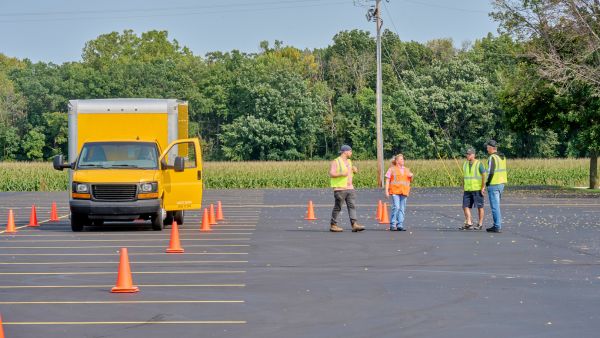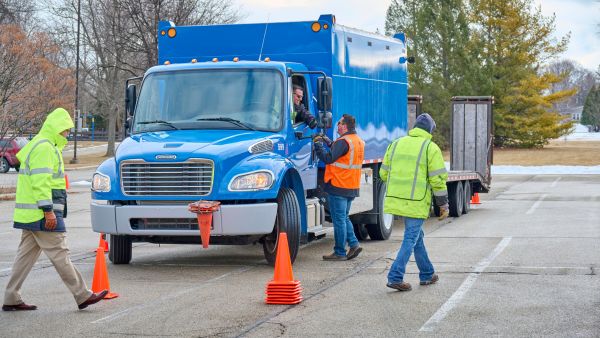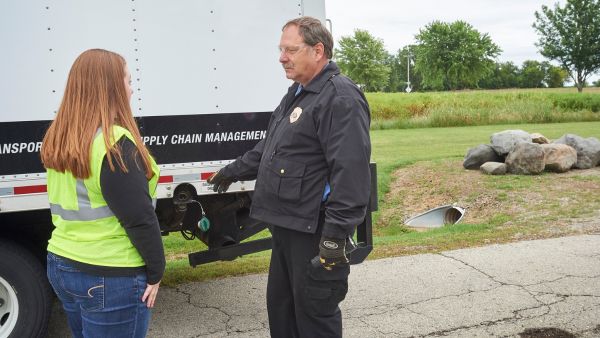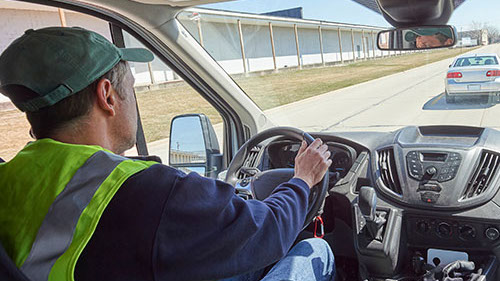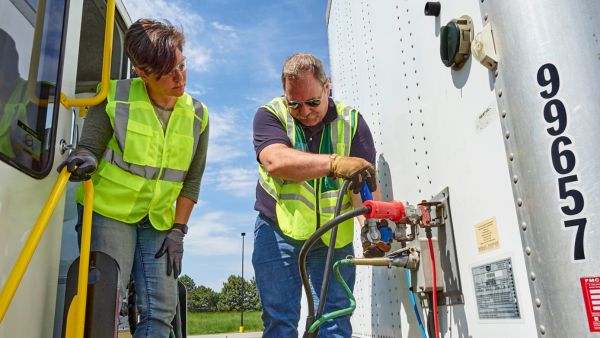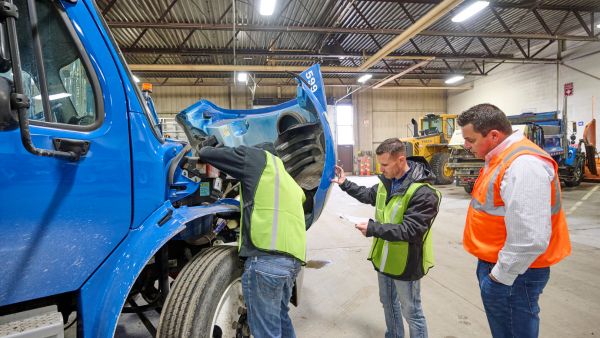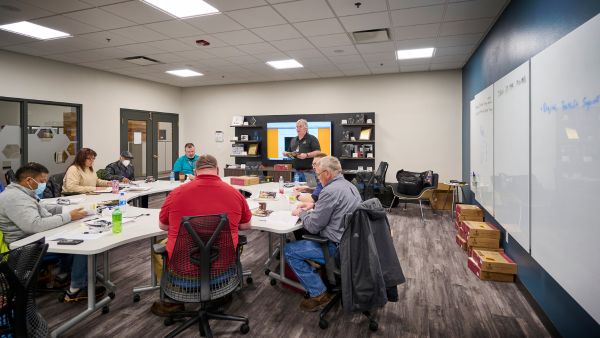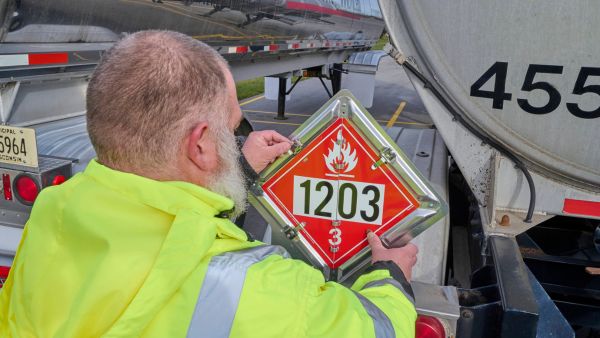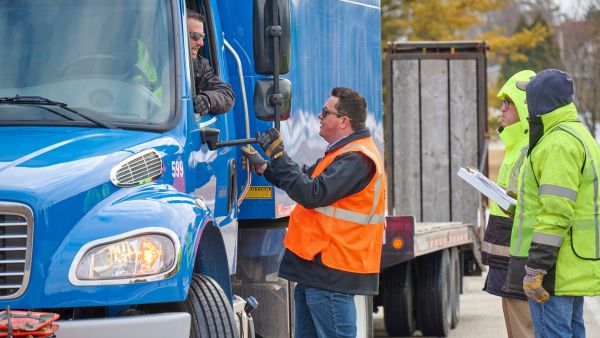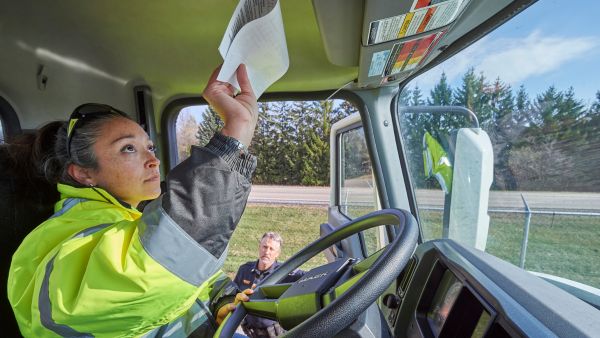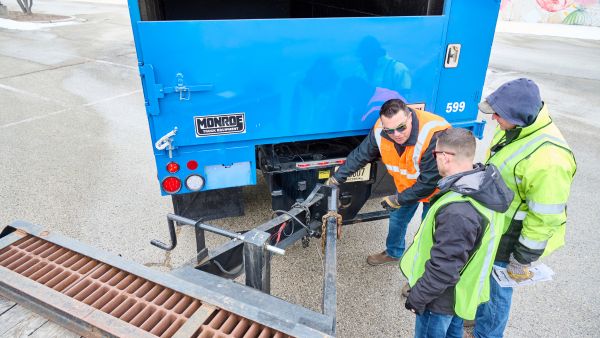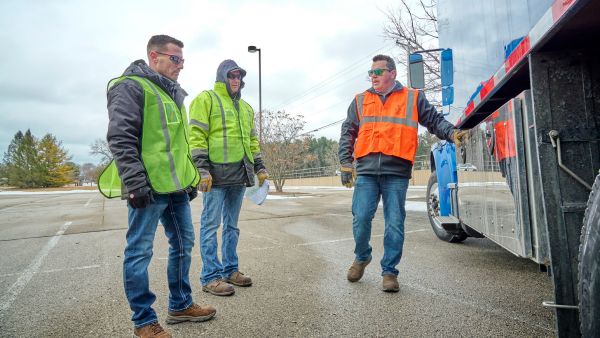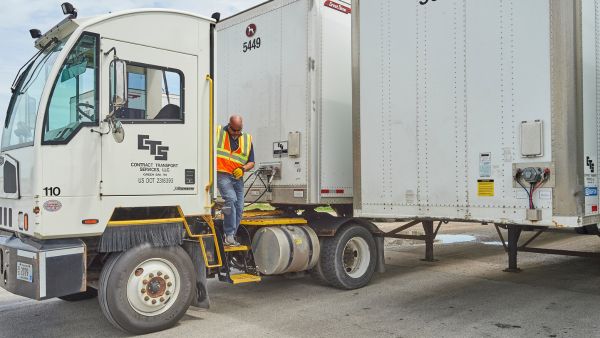February 19, 2024
Training News and Articles
How to Build a Driver Training Course and Program
Getting drivers time behind the wheel in a safe environment is a critical element of any effective training program. Learn the steps to building your own driver training course!
Safe Driving Equals Smart Business
January 26, 2024
Learn about the ROI of investing in safe driving.
The Accident Numbers Don’t Lie
December 21, 2023
Think you know how common and costly large truck accidents are? Test your knowledge!
Winter is Here! Time to Catch up on Maintenance, Including Maintaining (Training) Your People
December 18, 2023
With the arrival of winter, the operational tempo in the construction industry typically slows. This gives companies the time to catch up on the deferred maintenance. When this happens, do not forget to catch up on your driver maintenance.
5 Best Practices to Steer Clear of Trouble When Hiring Inexperienced Drivers
September 6, 2023
When safety is a core value supported by industry-leading best practices, inexperienced drivers are likelier to stay safe, be successful, and remain with the company.
Rev Up Driver Appreciation with a Best-in-Class Training Program
August 29, 2023
Highly skilled drivers are in short supply. Carriers investing in best-in-class training accelerate driver skill development and show appreciation.
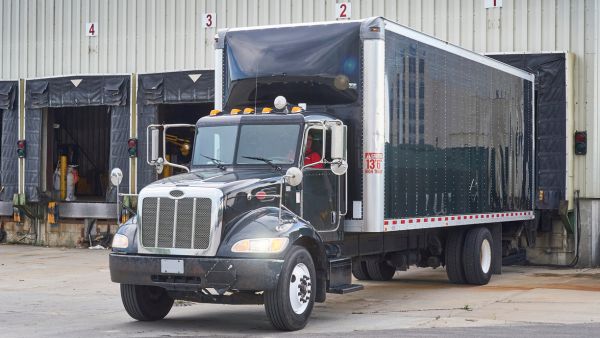
J. J. Keller’s Safe & Smart® Driver Training Program in the News!
June 21, 2023
A recent article in the Oakdale Leader features Kelsey Carter, transportation director for The Save Mart Companies, TSMC, who was recognized as Progressive Grocer’s 2023 Top Women in Grocery Awardee. One of her achievements includes implementing J. J. Keller’s Safe & Smart® Driver Training Program at two of their California locations.
Forklift Training — Develop an In-House Program
April 3, 2023
So, you want to train your forklift operators in-house, instead of sending them out to the expensive third-party training facility. How would you go about setting up an in-house program?
Looking Back and Looking Ahead on ELDT’s One-Year Anniversary
February 10, 2023
February 7, 2023, marks the one-year anniversary of the implementation of the entry-level driver training (ELDT) rule. So, how has it gone and what’s next? Let’s take a look.
J. J. Keller to Help Iowa Employers Take Advantage of State’s New Entry-Level Driver Training Program Funding
January 10, 2023
On December 5, 2022, Iowa Governor Kim Reynolds announced the Iowa Entry-Level Driver Training Program, a new funding opportunity making it easier for Iowa employers to train their drivers to earn a commercial driver’s license (CDL).
Adding a Hazmat Endorsement to an Existing CDL
December 13, 2022
As of that date, an individual must also complete a specific course of theory instruction presented and administered by a school or entity that meets all ELDT requirements and is listed on the Federal Motor Carrier Safety Administration’s (FMCSA) Training Provider Registry (TPR) prior to taking the hazmat endorsement knowledge test.
Defensive Driving — Not a One and Done
October 12, 2022
Defensive driving skills that should be covered regularly include seeing and being seen, visual scanning, speed and space management, merging, and navigating intersections. Plan to cover each of these topics at least once a year, or more often if you notice a need for refresher or corrective-action training.
Forklift Safety and Training
April 15, 2022
Forklift safety has seen a renewed focus recently with the observance of National Forklift Safety Day, a revised ANSI lift truck industry standard, and a regulatory agenda item to revise the OSHA standard. The increased focus is with good reason: powered industrial trucks (PIT) continue to be in heavy use throughout industry, and continue to be a source of severe injuries to workers.
Entry-Level Driver Training and Government Entities: The Top 3 Questions
February 28, 2022
There is an exception to the majority of the Federal Motor Carrier Safety Regulations (FMCSRs) for transportation performed by the federal government, state government, or a political subdivision of a state (§390.3(f)(2)). While there are many areas that the exception addresses, drivers who perform this type of transportation are required to comply with the commercial driver’s license (CDL) requirements (Part 383) and the drug and alcohol testing requirements (Part 382).
Compliance Date is Here: Top 3 ELDT Questions
February 17, 2022
Now that the entry-level driver training (ELDT) rule has been in place for a few weeks, carriers and schools are shifting from dealing with basic compliance to more specific, detailed issues.
The following are the top three questions being asked post-February 7.
3 Tips for Training Seasonal Drivers
January 24, 2022
Winter is here, and with it comes an onslaught of seasonal drivers to help haul cargo, deliver packages, and clear snowy roads. Although some employees work the same seasonal job year after year, most will be brand new to your company, and maybe even to the transportation industry.
How Training Can Keep You Out of the Courtroom
December 22, 2021
According to research conducted by the American Transportation Research Institute (ATRI), between 2014 and 2019 there were nearly 300 cases against trucking fleets that resulted in awards of $1 million or more.
Critical Questions to Address if You Use Yard Jockeys
Nearly all freight moves on trucks at some point. Most likely, a yard driver, also known as a yard jockey, hostler or switcher, helped get the goods to the destination. The short move in a trailer to and from the dock is a vital link that must be done safely by skilled and qualified employees.
New Entry-Level Driver Training (ELDT) Rule Is Almost Here!
Starting February 7, 2022, your entry-level drivers won't be able to take their CDL test until they successfully complete a specific program of theory and behind-the-wheel instruction provided by a school or other entity listed on FMCSA's new Training Provider Registry (TPR).
ELDT: What Recordkeeping is Required?
November 12, 2022
After an individual completes training administered by a provider listed on the TPR, that provider must, by midnight of the second business day after the driver-trainee completes the training, electronically transmit training certification information through the TPR website.
Entry-Level Driver Training: The Basics
August 17, 2021
Compliance with the new Entry-Level Driver Training (ELDT) rule is quickly approaching. As of February 7, 2022, the education requirements will change for an individual who wants to: Obtain a commercial driver’s license (CDL); Upgrade a CDL; or Obtain a passenger, school bus, or hazmat endorsement.
What Does It Take To Become An Entry-Level Driver Training Instructor?
September 27, 2021
Compliance with the new entry-level driver training (ELDT) requirements is right around the corner — specifically, February 7, 2022. As this date approaches, carriers are scrambling to ensure compliance. In this mad dash to the finish line, we are receiving many questions related to the requirements for becoming an ELDT instructor. The following are the top three.
Five Key Elements of a Yard Driver Training Program
September 9, 2021
Skilled yard drivers, yard jockeys, spotters, or whatever the job title is at your company are crucial to yard safety and efficiency. It is imperative to train CDL-holding and non-CDL yard drivers, reduce potential liability and avoid accidents, injuries, or worst-case, a fatality, even if they never leave your yard. Train in the following areas at the time of hire, periodically after hire, and to correct deficiencies to demonstrate your commitment to safety and protect your business.
Training Improves Driver Retention
July 26, 2021
Driver retention has always been an Achilles heel for the trucking industry. Driver shortages and high turnover rates have been the norm for years. But driver retention will become an even more critical issue in the future as driver shortages and turnover rates are expected to climb dramatically over the next several years.
The Whys and Hows of Corrective Action Training for Drivers
May 26, 2021
Corrective action training, sometimes referred to as remedial training, is conducted in response to an accident, violation, or complaint. The goal of corrective action training is to address and correct an issue, problem, or bad habit when it first occurs and is minor in nature — before it escalates into something major that could lead to a serious accident and/or violation.
3 Tips for Providing Driver Training to a Diverse Group of Learners
April 28, 2021
Trucking is a diverse industry. It employs individuals of various ages, backgrounds, and experiences. This diversity adds value to an organization, but it can also present challenges for even the most experienced driver trainer. What may work in an instructional setting for one individual may not work for another.
Top Three Challenges to Developing an Effective Driver Training Program
March 1, 2021
A well-established training program, tailored to an operation's needs, is a key component of a motor carrier's safety program. A lack of customized training aimed at your operation's and drivers' specific needs can lead to accidents and incidents.
Get More Out of Your Road Tests
March 17, 2021
Road test requirements are designed to aid in vetting driver applicants, but your road test should do more than evaluate driving skill. It should also help determine long-term fit. A standardized road test is an indicator of whether a driver can safely handle your equipment. It can also give you insight into the driver's ability to learn, be patient in stressful situations, and fit into your team. The road test should be a well-defined, but fair evaluation of your new drivers.
